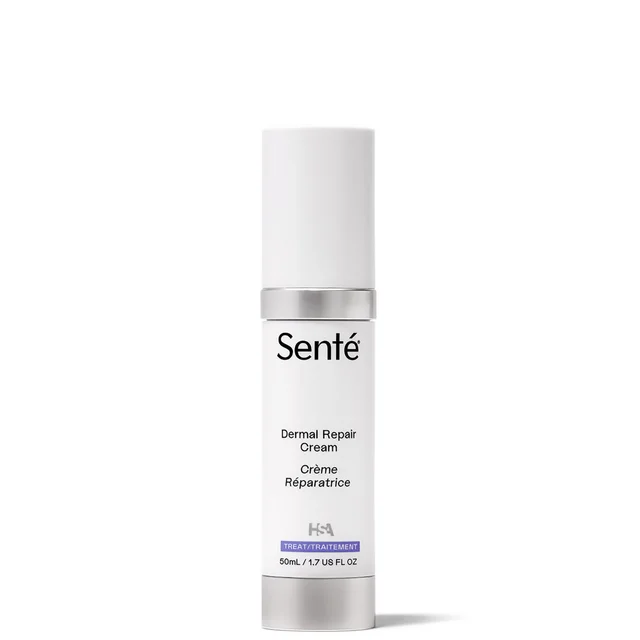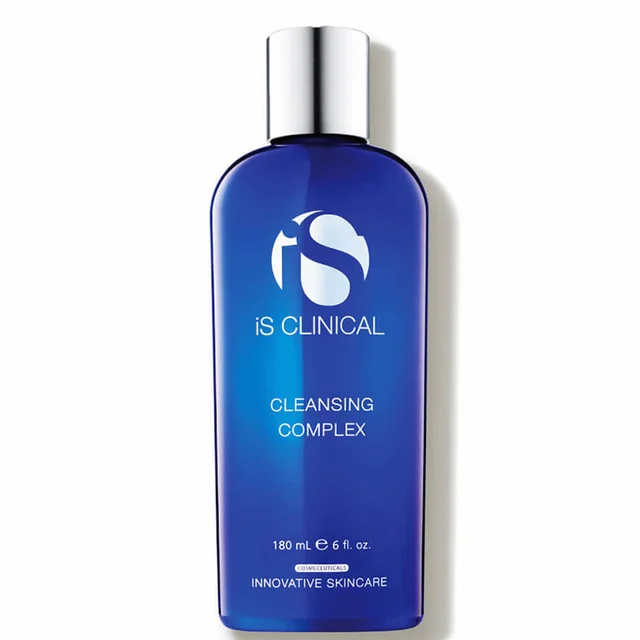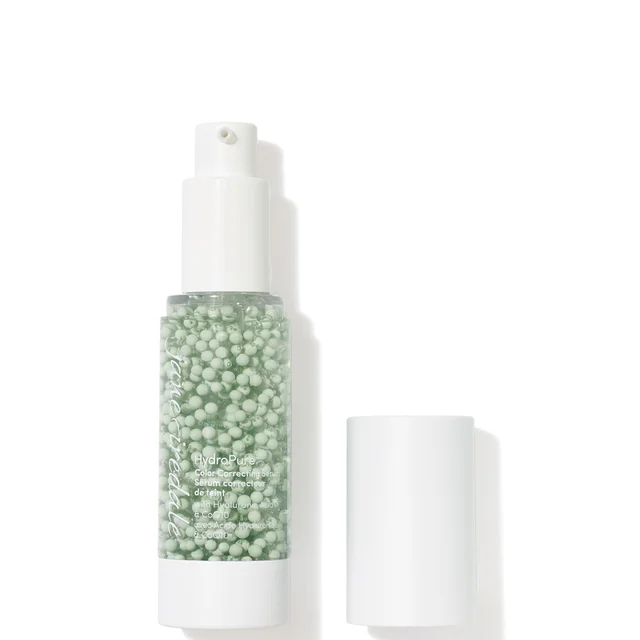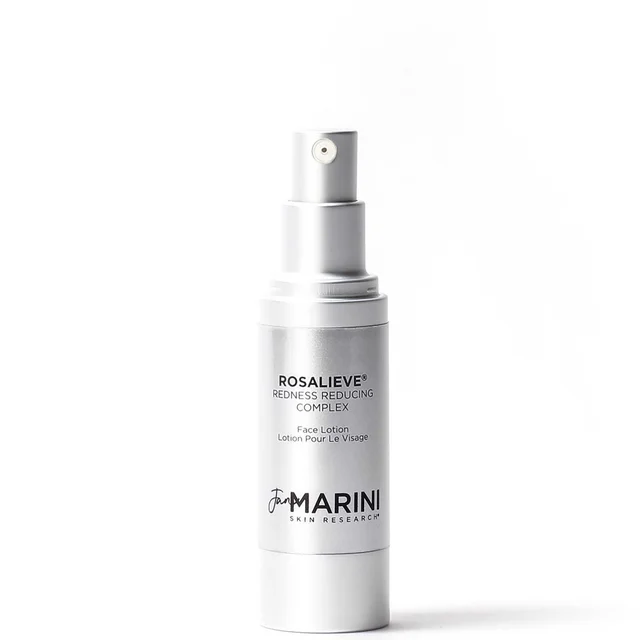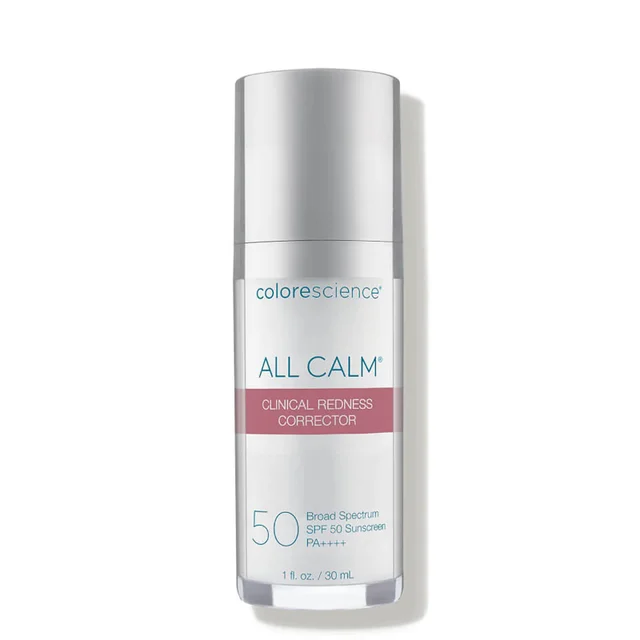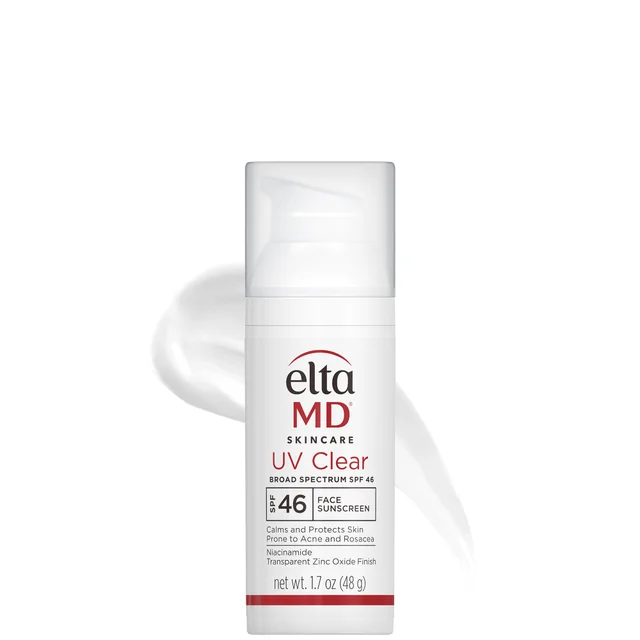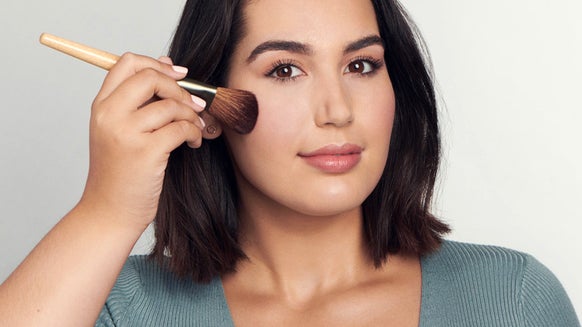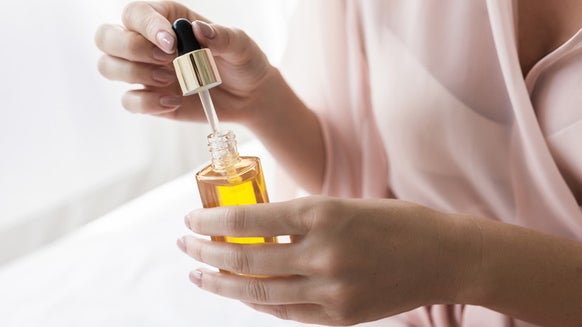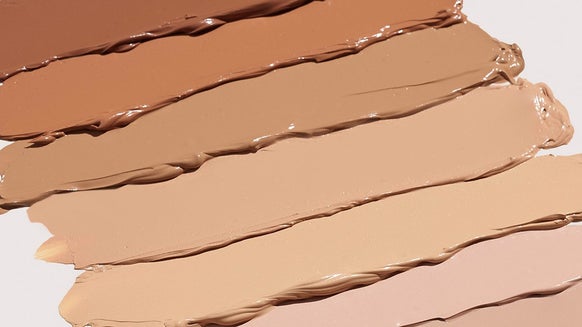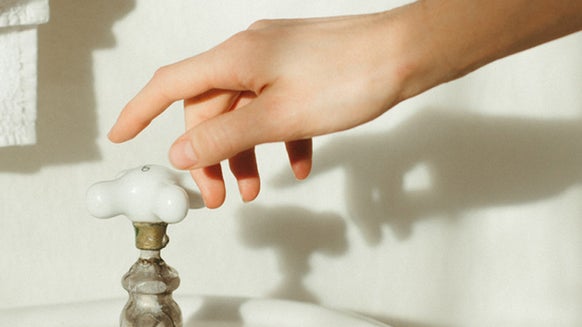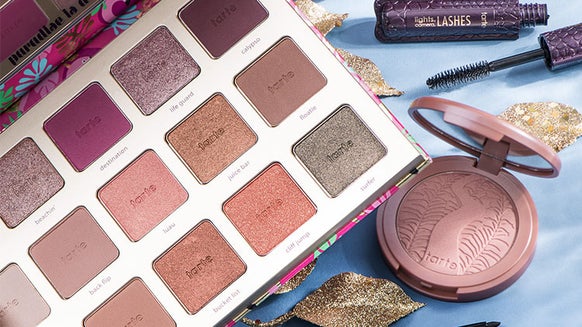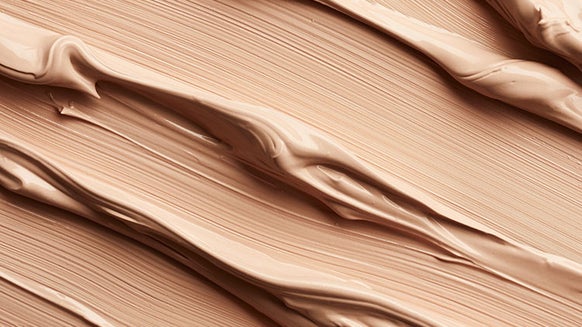Rosacea Awareness: Discover the Ultimate Treatment Products
Rosacea affects more than 14 million American adults, and even though it's a somewhat debilitating skin condition, it can effectively be controlled. Categorized as red, flushed skin, often with small bumps that resemble acne (but aren't), the emotional effects of rosacea may have more of an impact on some than the physical appearance. If rosacea flare-ups have you second-guessing your skincare routine and how to care for your skin, this is everything you'll want to know about the condition and what to do and use so you can get your skin back to healthy, with a more even skin tone and less redness and texture, once and for all.
Table of Contents:
- What is Rosacea?
- Treatment Approaches for Rosacea
- Lifestyle Tips for Managing Rosacea
- The Ultimate Rosacea Treatment Products
- The Best Skin Care Products for Rosacea
What is Rosacea?
Rosacea is a chronic yet controllable common skin condition that primarily affects the skin on the face. For most people who deal with rosacea, the signs of the condition include flushing, blushing, broken or visible capillaries, bumpy, almost pimple-like blemishes, and red, thickened skin. Rosacea is common in those with sensitive skin and fair skin tones, but it can affect any skin type and tone.
The exact cause of rosacea remains a great scientific unknown; its symptoms are generally the same from one person to the next. While some evidence points to the underlying cause of rosacea as defects in immune system functionality, others pinpoint facial blood vessels as the reason for flare-ups and the presence of Demodex mites on the skin. Anecdotal evidence also draws a connection between genetics and skin condition, yet one definitive cause of rosacea remains to be determined. What is known, despite the underlying cause of rosacea, is that high levels of inflammatory proteins called cathelicidins in the skin can contribute to skin redness, and specific triggers can bring on a bout of rosacea, which is why it is essential to recognize what can set off your skin and avoid them.
Common rosacea triggers include:
- Heat
- Cold wind
- Eating hot or spicy foods
- Alcohol
- Sun exposure
- Stress
- Certain skin, hair, and makeup products
- Exercise
- Some medications
To help control the effects of rosacea-prone skin, it's important to visit your dermatologist for an accurate diagnosis. There's no medical test to diagnose rosacea-prone skin. Still, your dermatologist can assess your skin and eyes, particularly if they are in a rosacea-induced state, and ask a few questions, which is usually enough for him or her to make an accurate diagnosis. Your doctor may also want to rule out other medical conditions, such as lupus, which can be misdiagnosed as rosacea since some symptoms are similar.
Not all rosacea is the same, and four types of rosacea occur:
- Erythematotelangiectatic rosacea causes persistently red, flushed skin. Often, blood vessels on the face become enlarged and more visible due to trigger exposure but disappear independently. Failing to treat this type of rosacea can cause more extensive areas of skin redness to persist for extended periods and potentially become permanent.
- Papulopustular rosacea surfaces as small whitehead-like pustules and red, swollen bumps that can be mistaken for acne. This type of acne tends to appear on the cheeks, chin, and forehead, as well as the chest, neck, and scalp. Facial redness and flushing are also common.
- Phymatous rosacea causes the skin to become thick, bumpy, swollen, and sometimes discolored, with the potential for scarring. This type of rosacea is often seen on men's noses, making them appear bulbous and swollen.
- Ocular rosacea affects the eyes rather than the skin, causing them to appear red, bloodshot, and watery. The eyes typically burn, feel irritated, and may be constantly dry and sensitive. Cysts often form on the eyelids, too.
The earlier your skin is accurately diagnosed as rosacea-prone, the better. That's because if you suffer from the condition and understand which type of rosacea affects your skin or eyes, along with the help of your dermatologist, you can learn about your triggers and control or avoid exposure to them. Since there is no cure for rosacea, mitigating the factors that bring on an episode of reactive skin is critical to reducing the effects of rosacea on your skin. Your dermatologist may also prescribe medication or recommend a laser treatment to help control active flare-ups.
Treatment Approaches for Rosacea
Finding an effective rosacea treatment for your skin may require trial and error until you settle on the right combination. Often, your dermatologist will recommend a multi-prong treatment approach that consists of topical and oral medications, lifestyle changes, and a rosacea-specific skincare routine. Ultimately, the best rosacea treatment is the one that works for your skin to keep it calm, soothed, and free of flare-ups. What works for one person may not necessarily be the best tactic for another, so taking a personalized approach to your treatment for rosacea is key.
A handful of rosacea prescription medications are FDA-approved for the condition in addition to using light and laser devices and treatments (with or without medications), like IPL (intense pulsed light), BBL (broadband light), and PDT (photodynamic therapy) that target inflammation and redness.
As far as rosacea skincare goes, it's crucial always to wear sunscreen since UV exposure can exacerbate rosacea and even cause the condition to progress over the long term. You'll also want to follow a basic skincare routine since the skin can be more on the sensitive side that consists of a gentle, soap-free cleanser (and only rinsing it off with lukewarm water) and fragrance-free moisturizer, which will help the skin retain water. Other dermatologist-recommended rosacea skin care products include a barrier repair cream, anti-redness serum, antioxidant serum, and collagen-boosting creams to improve the skin's health over time. You'll likely also be advised to use skincare products with azelaic acid, benzoyl peroxide, and sulfur; it's best to avoid any skincare products with fragrance, alcohol, camphor, menthol, urea, sulfates, and glycolic and lactic acids.
Lifestyle Tips for Managing Rosacea
Skincare and medication are only one part of the puzzle in rosacea skincare to keep its symptoms under control. Making some changes to your lifestyle is also essential, which may include avoiding certain environmental factors, like cold and heat, which can prompt a flare-up, steering clear of drinking alcohol, eating spicy foods, and doing your best to keep your body and skin calm and always hydrated.
One of the best ways to treat rosacea-prone skin is to fully understand which specific triggers cause a flare-up. While common triggers like sun, heat, cold, wind, and alcohol can send your skin into overdrive, for others, it may be dairy, a specific vegetable, or meat. Recognizing your triggers and avoiding them will help keep your skin calm.
The best products for rosacea are gentle ones made for sensitive skin and with calming ingredients that help hydrate the skin while reducing inflammation and irritation. Using a broad-spectrum SPF daily is important for rosacea-prone skin since sun exposure can bring about an onset of rosacea symptoms. Controlling your stress levels and taking full stock of your diet and what foods and drinks may contribute to your rosacea are other ways to help prevent it. No matter how mild or extreme your rosacea may be, taking care of yourself and maintaining a positive outlook, especially when undergoing rosacea treatment, is necessary.
The Ultimate Rosacea Treatment Products
There are plenty of skincare products on the market that work for easily irritated, red, and inflamed skin. While some of those may be helpful if you have rosacea, the best products for rosacea are those that work to calm the skin and nurse it back to health for the long term.
Creams
Dry, desensitized skin is a common side effect of rosacea, and the appropriate over-the-counter cream can make a difference. Within rosacea creams, you're bound to find ingredients like ceramides and hyaluronic acid, which moisturize the skim; niacinamide, which reduces inflammation within the skin for less redness; and even azelaic acid and sulfur, which can help mitigate the red, desensitized look of rosacea-prone skin.
Best for: Adding hydrating to the skin, which can help to soften the texture, and helping to lower inflammation-causing redness
Gels
Both over the counter and medicated gels can help mitigate the effect of skin flushing and redness. Gels are also comforting on the skin, can reduce the feeling of heat radiating from within, and can help constrict blood vessels so they are less visible on the skin’s surface.
Best for: Skin flushing and papules
Serums
Unlike creams, which hydrate the skin, serums act as powerful boosters to deliver much-needed ingredients to the skin. In a serum, you’ll find targeted ingredients that provide a specific function, like reducing redness and irritation and boosting the skin’s overall health.
Best for: Taking down redness and restoring a damaged skin barrier
The Best Skin Care Products for Rosacea
If rosacea is an issue, properly caring for your skin is essential for controlling the condition. An accurate diagnosis by your dermatologist will help you understand the type of rosacea your skin is affected by. From there, with the help of your doctor, you can develop the best rosacea treatment plan for your skin based on your triggers and what ingredients your skin responds well to.
Rosacea skin care is an essential component in controlling rosacea and its symptoms. Using gentle yet hydrating products free of fragrance and harsh ingredients will help keep the skin under control. It's also critical to protect the skin from the sun daily and make the necessary lifestyle changes to limit rosacea-induced redness, dryness, texture changes, and minor blemishes.
1. SENTÉ Dermal Repair Cream (1.7 oz.)
2. Eminence Organic Skin Care Calm Skin Chamomile Cleanser 8.4 fl. oz
3. iS Clinical Cleansing Complex (6 oz.)
4. jane iredale HydroPure Color Correcting Serum with Hyaluronic Acid and CoQ10 1 fl. oz
5. PCA SKIN Anti-Redness Serum (1 fl. oz.)
6. REN Clean Skincare Ultra Comforting Rescue Mask 50ml
7. Jan Marini Rosalieve (1 fl. oz.)
8. SkinCeuticals Redness Neutralizer (1.67 fl. oz.)
9. Colorescience All Calm Clinical Redness Corrector SPF 50 (1 fl. oz.)
10. EltaMD UV Clear Broad-Spectrum SPF 46 (1.7 fl. oz.)

Elise Minton Tabin is an award-winning beauty journalist, editor, and beauty expert with more than 16 years of experience. She previously held the title of Executive Beauty Editor at NewBeauty magazine, where she reported on beauty, plastic surgery, anti-aging, health and wellness. She was also instrumental in the launch of the beauty supplement brand Hush & Hush. A self-professed beauty junkie and retinol and sunscreen pusher, Elise knows what’s new, what works and who’s the best to go for every procedure under the sun. Follow Elise on Facebook, Instagram, and on her beauty blog, elisetabin.com
